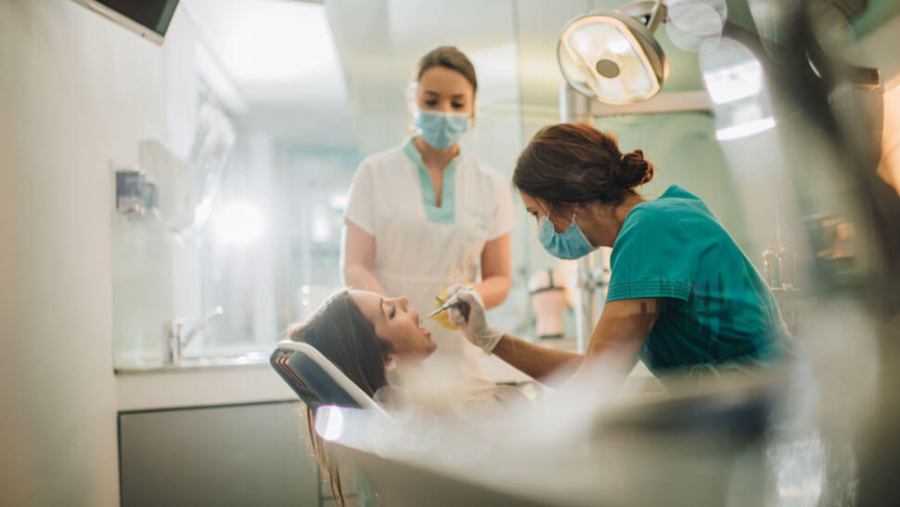

The NHS issued guidance for NHS dental contract holders about the Covid-19 pandemic on 25 March. I wrote about it here. The guidance answered many questions. It also raised many more and the BDA has compiled a list.
I’ll also look at the key issues here.
What reliefs will mixed practices be able to claim?
The guidance says “Practices benefiting from continued NHS funding will not be eligible to seek any wider government assistance to small businesses which could be duplicative.”
However, if you’re the owner of a mixed practice, this raises questions. If you receive relief from the NHS under your NHS contract does this mean you are unable to seek any recompense under any other government scheme for the private aspect of your practice?
Our specialist healthcare employment solicitor Stephenie Malone provided her comments on employee and employer’s rights under the current government guidance:
Who will be responsible for employees’ rights and protections if they are redeployed?
“For the contract year 2020 to 2021, the NHS has proposed that practice owners should work with the NHS to deploy staff to other areas. This will help practices maintain delivery of their NHS contract and to have any end of year clawback considered. It hasn’t been confirmed whether any redeployment will be to dental practices or other services in the NHS.
But what happens if you have a member of staff resists redeployment?
And if staff are redeployed, who will be responsible for their ongoing employment rights and protections?
Do their contracts allow them to be re-deployed elsewhere because of a mobility clause in their employment contract? What if there are any additional expenses as a result of redeployment? Should any extra time spent travelling be considered part of their existing working hours (arguably it does and should be paid). How will any disciplinary or grievance matters be dealt with?
There are additional questions if you are a mixed practice. Will the redeployment extend to employees who strictly work on private matters?”
How will furloughing work in practice?
“The interplay with the Government’s Job Retention Scheme (a.k.a. furlough) is also unclear. Furlough leave has to be agreed between the practice and employees. That is, practices cannot impose furlough on staff and staff cannot request it. But what happens if staff who would normally go on furlough leave because the practice’s private work has stopped are required to work elsewhere in the NHS? How would a practice decide which staff to furlough and which to re-deploy? Can they be substituted for each other on a regular basis? The additional Government guidance on furlough leave guidance published overnight requires furlough leave to be for a minimum three week period.
We advise approaching decision making with caution. The implications of both the Job Retention Scheme and NHS deployment are in their very earliest stages.”
A partner in our Licencing and Regulatory team considers what this means from GDPR and CQC perspective:
Urgent dental care provision during the pandemic
“The 2019 Commissioning Standard for Urgent Dental Care said that consistency was problem during urgent dental care services. It specifically concluded there was inconsistency between PCTs and the volume and availability of the urgent dental care service.
These inconsistencies are likely to become an even bigger problem during the pandemic. These are some of the challenges you might be thinking about:
- IT systems are going to be stretched and patient health data is likely to be a weak spot. How will this be overcome? Will GDPR requirements be relaxed in this time of crisis?
- Will the assessment/prioritisation of service users be consistent within UDC definitions?
- What happens if a practice is unable to offer UDC? (In Northern Ireland, for example, a practice is required to make arrangements with a neighbouring practice and they are urgently requested to use HSCNI emails to put forward names of dentist and nurse teams to be fitted for FFP3 masks)
- What happens if the re-calculation for 2019/20 UDCs based on March 2019 data is unfavourable to your practice? Can it be challenged?”
Notifying CQC if you close your practice due to the Covid-19 pandemic
“The NHS guidance said routine dentistry and orthodontic treatment should no longer be provided and that urgent and emergency care will be based on telephone advice and prescription of analgesics or antibiotics as necessary. Many practices will therefore be closing. But as the whole of the dental sector is affected, you do not have to notify the CQC. The only time you need to notify them at the moment is if you are closing permanently. You can read the guidance here.“










